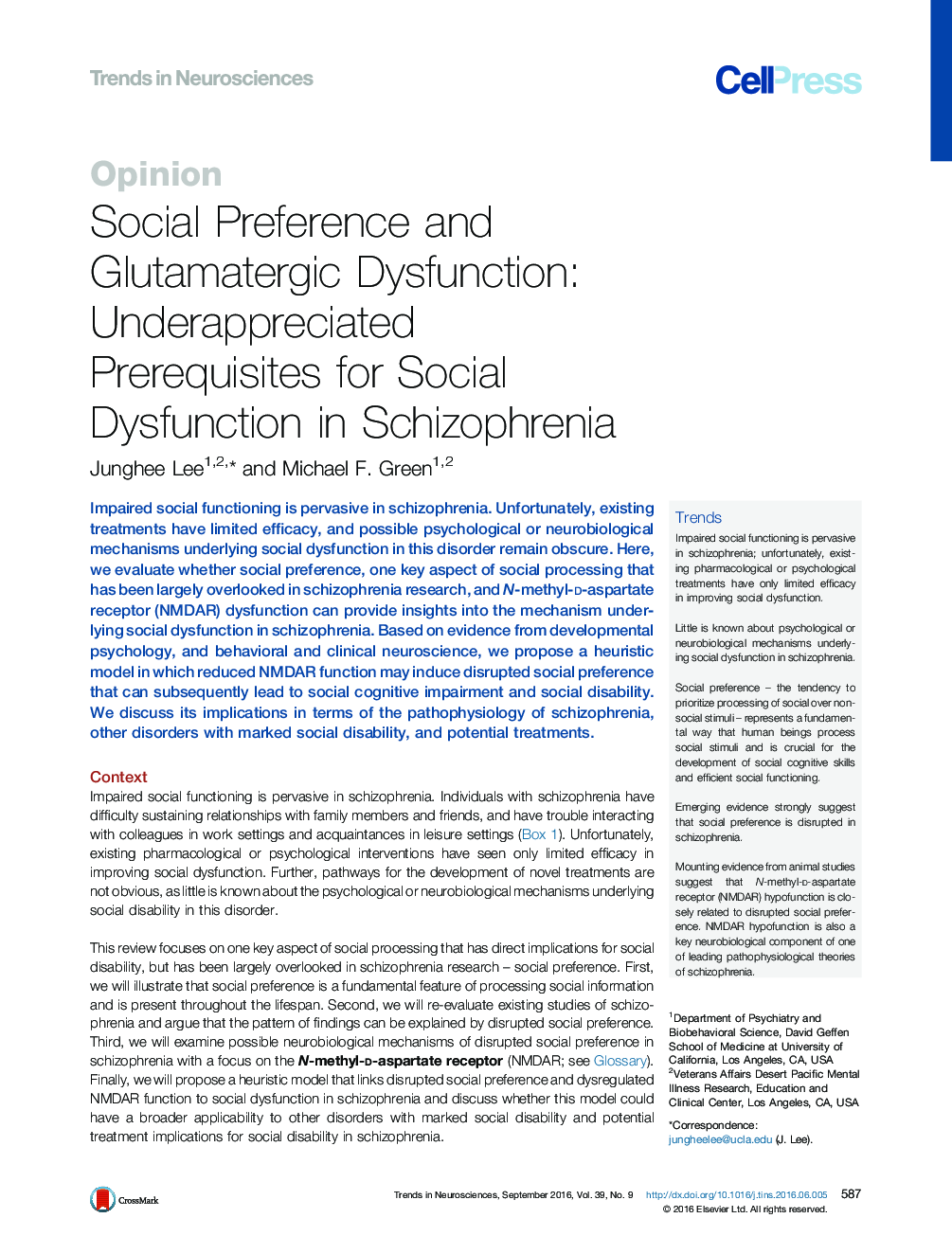| Article ID | Journal | Published Year | Pages | File Type |
|---|---|---|---|---|
| 4354087 | Trends in Neurosciences | 2016 | 10 Pages |
Impaired social functioning is pervasive in schizophrenia. Unfortunately, existing treatments have limited efficacy, and possible psychological or neurobiological mechanisms underlying social dysfunction in this disorder remain obscure. Here, we evaluate whether social preference, one key aspect of social processing that has been largely overlooked in schizophrenia research, and N-methyl-d-aspartate receptor (NMDAR) dysfunction can provide insights into the mechanism underlying social dysfunction in schizophrenia. Based on evidence from developmental psychology, and behavioral and clinical neuroscience, we propose a heuristic model in which reduced NMDAR function may induce disrupted social preference that can subsequently lead to social cognitive impairment and social disability. We discuss its implications in terms of the pathophysiology of schizophrenia, other disorders with marked social disability, and potential treatments.
TrendsImpaired social functioning is pervasive in schizophrenia; unfortunately, existing pharmacological or psychological treatments have only limited efficacy in improving social dysfunction.Little is known about psychological or neurobiological mechanisms underlying social dysfunction in schizophrenia.Social preference – the tendency to prioritize processing of social over nonsocial stimuli – represents a fundamental way that human beings process social stimuli and is crucial for the development of social cognitive skills and efficient social functioning.Emerging evidence strongly suggest that social preference is disrupted in schizophrenia.Mounting evidence from animal studies suggest that N-methyl-d-aspartate receptor (NMDAR) hypofunction is closely related to disrupted social preference. NMDAR hypofunction is also a key neurobiological component of one of leading pathophysiological theories of schizophrenia.
